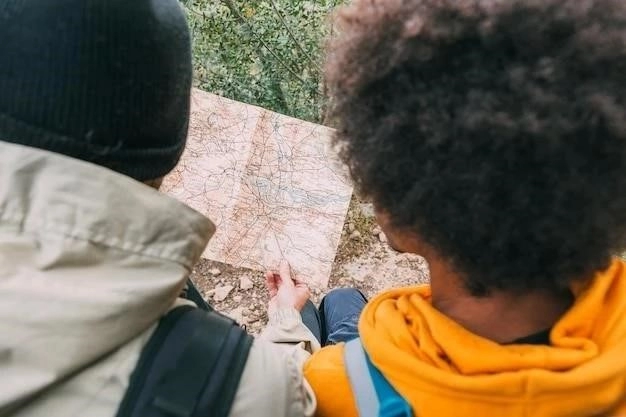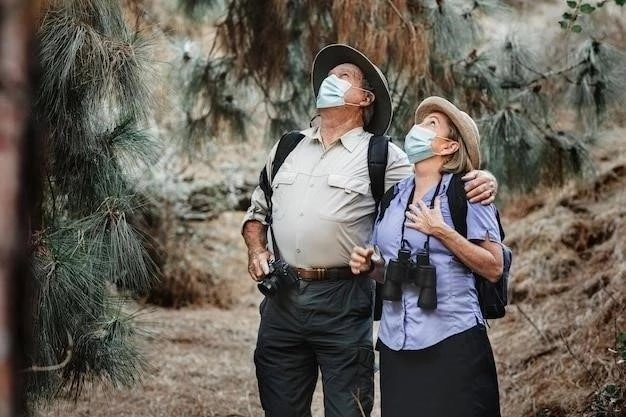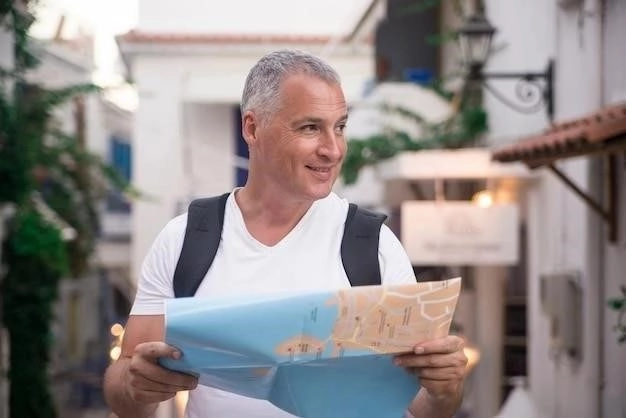Comoros Travel Guide 2024
Discover the Comoros Islands, a hidden gem in the Indian Ocean. This comprehensive guide provides everything you need for an unforgettable trip, from visa requirements and currency exchange to safety tips and responsible tourism advice. Explore stunning beaches, immerse yourself in vibrant culture, and create lasting memories in this island paradise.
Planning Your Trip
Embarking on a journey to the captivating Comoros Islands requires meticulous planning to ensure a seamless and enriching experience. Begin by identifying the purpose of your visit, whether it’s to bask on pristine beaches, delve into the islands’ rich culture and history, or embark on exhilarating hikes through volcanic landscapes. This will help determine the ideal time to visit, considering the islands’ tropical climate and the best seasons for specific activities.
Next, delve into comprehensive research about the islands, exploring their unique attractions, local customs, and any necessary travel advisories. Consider the duration of your stay and create a well-structured itinerary that aligns with your interests, allowing ample time to soak in the beauty of each island.
Securing your travel essentials is paramount. Research and book flights in advance, especially if traveling during peak seasons. Explore visa requirements based on your nationality and ensure your passport has sufficient validity. Secure appropriate travel insurance that covers medical emergencies, trip cancellations, and other unforeseen circumstances.
Familiarize yourself with the local currency, the Comorian franc (KMF), and research reputable currency exchange options. Pack light, practical clothing suitable for a tropical climate, including swimwear, comfortable walking shoes, and modest attire for cultural sites. Finally, embrace the spirit of adventure and prepare to be captivated by the beauty and charm of the Comoros Islands.
Visas and Entry Requirements
Navigating the entry requirements for the Comoros Islands is essential for a smooth arrival. Citizens of select countries are granted visa-free entry for a limited period, typically for tourism purposes. However, it’s crucial to verify the specific visa policy based on your nationality well in advance of your travel date.
If a visa is required, you can apply for a tourist visa through the nearest Comorian embassy or consulate in your country of residence. The application process typically involves completing a visa application form, providing supporting documents such as a valid passport with at least six months of remaining validity, proof of accommodation, and return flight tickets. It’s advisable to apply for your visa well in advance to allow for sufficient processing time.
Upon arrival at the Prince Said Ibrahim International Airport in Moroni, immigration officials will review your travel documents and may ask questions about your purpose of visit and intended length of stay. It’s essential to have all required documents readily available and to answer any questions clearly and truthfully.

While the Comoros Islands welcome visitors from around the globe, it’s crucial to respect their immigration laws and regulations. Overstaying your visa or attempting to enter the country without proper documentation can lead to penalties and complications. Staying informed and ensuring compliance with entry requirements will contribute to a hassle-free and enjoyable experience in this captivating island nation.
Currency and Money Exchange
The official currency of the Comoros Islands is the Comorian franc (KMF), denoted by the symbol “CF”. When planning your trip, it’s advisable to familiarize yourself with the current exchange rates to ensure you have a clear understanding of the value of your money.
While credit cards are becoming more widely accepted in larger hotels and establishments, it’s essential to note that the Comoros Islands remain a predominantly cash-based society. Carrying sufficient local currency is crucial for daily transactions, particularly in smaller shops, local markets, and for transportation.
Currency exchange services are readily available at Prince Said Ibrahim International Airport upon arrival. However, you’ll often find more favorable exchange rates at banks and licensed exchange bureaus in major towns and cities. It’s generally advisable to exchange currency gradually throughout your trip to avoid carrying large sums of cash.
When making transactions, it’s customary to count your change carefully and verify the denominations. While the Comoros Islands are generally safe, it’s always prudent to exercise caution with your finances, as in any destination. Keeping your money secure and being mindful of your surroundings will contribute to a more enjoyable and hassle-free experience.
Best Time to Visit

The Comoros Islands boast a tropical climate characterized by warm temperatures year-round, making it an alluring destination for sun-seekers and nature enthusiasts alike. However, understanding the nuances of the islands’ two distinct seasons – a hot, humid season and a cooler, drier season – is essential for optimizing your travel experience.
For those seeking idyllic beach weather and optimal conditions for water activities, the best time to visit the Comoros Islands is during the cooler, drier months, which typically span from June to October. During this period, humidity levels are relatively lower, and the islands experience refreshing breezes, creating a pleasant climate for exploring the outdoors.
Conversely, the hot, humid season, from November to May, brings with it higher temperatures and increased rainfall. While this period may deter some travelers, it’s worth noting that the islands’ lush landscapes are at their most vibrant during this time, offering a unique perspective for nature lovers. Additionally, the hot season coincides with the flowering of ylang-ylang, a fragrant flower used in perfume production, adding a sensory dimension to your travels.
Ultimately, the ideal time to visit the Comoros Islands depends on your personal preferences and priorities. By considering the climatic variations and seasonal highlights, you can select the perfect time to embark on an unforgettable journey to this enchanting archipelago.
Getting There and Around
Reaching the Comoros Islands, nestled in the azure waters of the Indian Ocean, requires careful consideration of available transportation options. The primary gateway to this captivating archipelago is the Prince Said Ibrahim International Airport (HAH), located in Moroni, the capital city of the Union of the Comoros.
Several international airlines offer scheduled flights to the Comoros, connecting travelers from major hubs around the world. Direct flights are available from destinations such as Paris, Nairobi, and Antananarivo, providing convenient access for international visitors. It’s advisable to book flights in advance, especially during peak tourist seasons, to secure the most favorable fares and connections.
Once you’ve arrived in the Comoros, navigating between the islands and exploring their hidden gems can be accomplished through a combination of domestic flights, ferries, and local transportation. Domestic flights operated by local airlines connect the three main islands – Grande Comore, Mohéli, and Anjouan – offering scenic views and efficient transfers. Ferry services also operate between the islands, providing a more leisurely and budget-friendly mode of transport.
Within the islands, taxis are a readily available and convenient way to get around, particularly for shorter distances. Negotiate fares before starting your journey to avoid any misunderstandings. For a more immersive experience, consider renting a car to explore the islands at your own pace, allowing you to discover hidden coves, charming villages, and breathtaking viewpoints.
Accommodation
The Comoros Islands offer a range of accommodation options to suit diverse preferences and budgets, ensuring a comfortable and enjoyable stay amidst the archipelago’s captivating beauty. Whether you seek the opulent tranquility of a beachfront resort or the intimate charm of a locally-run guesthouse, you’ll find accommodations that cater to your needs.
For those seeking an indulgent escape, the islands boast a selection of upscale resorts, primarily situated along the pristine coastlines of Grande Comore and Mohéli. These establishments offer a range of amenities, including swimming pools, spas, fine dining restaurants, and direct access to secluded beaches. Imagine waking up to the gentle sound of waves crashing against the shore, with breathtaking ocean views from your private balcony.
Travelers seeking a more authentic and immersive experience can opt for smaller hotels and guesthouses, often family-run and imbued with local charm. These accommodations provide a glimpse into the Comorian way of life and offer opportunities to interact with friendly locals. Many guesthouses are located in picturesque villages or within walking distance of local attractions, allowing you to soak in the islands’ unique ambiance.
Regardless of your choice, it’s advisable to book your accommodation in advance, especially during peak tourist seasons, to secure your preferred lodging. When selecting accommodations, consider factors such as proximity to beaches, amenities offered, and transportation options to ensure a comfortable and convenient base for your Comorian adventures.
Things to Do
The Comoros Islands offer a captivating tapestry of experiences for discerning travelers seeking adventure, tranquility, and cultural immersion. From pristine beaches lapped by turquoise waters to volcanic landscapes teeming with endemic wildlife, the islands promise an unforgettable journey of discovery.
Indulge in the quintessential island experience by basking on the sun-kissed shores of Mitsamiouli or Chomoni Beach, where powdery white sand meets crystal-clear waters. Dive into a vibrant underwater world renowned for its coral reefs, colorful fish, and even encounters with gentle whale sharks. For those seeking an adrenaline rush, embark on a thrilling hike to the summit of Mount Karthala, an active volcano and the highest point in the Comoros, rewarding adventurers with breathtaking panoramic views.
Delve into the islands’ rich cultural heritage by exploring the historic medina of Moroni, a UNESCO World Heritage site. Wander through labyrinthine alleyways, admire ancient mosques and palaces, and soak in the vibrant atmosphere of bustling markets. Immerse yourself in the local culture by attending a traditional music and dance performance or visiting a local village to witness age-old crafts and traditions.
Nature enthusiasts will find solace in the islands’ verdant forests, home to endemic bird species, giant fruit bats, and the elusive Livingstone’s fruit bat, the largest bat in the world. Embark on guided nature walks, explore pristine crater lakes, and witness the breathtaking beauty of the islands’ flora and fauna. Whether you seek adventure, relaxation, or cultural immersion, the Comoros Islands offer an array of experiences to satisfy every traveler’s desires.
Beaches and Water Activities
The Comoros Islands beckon beach lovers and water enthusiasts with their pristine coastlines, crystal-clear waters teeming with marine life, and a tranquil ambiance that invites relaxation and adventure in equal measure. Whether you yearn for sun-drenched days on powdery white sand or exhilarating underwater explorations, the islands offer a captivating aquatic playground.
Among the islands’ most alluring stretches of coastline is Mitsamiouli Beach, renowned for its soft, white sand, azure waters, and a backdrop of lush greenery. Unwind beneath gently swaying palm trees, take a refreshing dip in the inviting ocean, or embark on a leisurely stroll along the shore as the sun casts a golden glow over the horizon. For a more secluded escape, venture to Chomoni Beach, where volcanic rock formations frame a picturesque cove lapped by turquoise waters, offering a sense of tranquility and seclusion.
The underwater world surrounding the Comoros Islands is equally captivating, with vibrant coral reefs teeming with a kaleidoscope of marine life. Don your snorkeling gear or embark on a scuba diving excursion to witness the beauty of this underwater realm firsthand. Glide alongside colorful fish, encounter graceful sea turtles, and marvel at the intricate formations of coral gardens. For a truly unforgettable experience, swim alongside gentle whale sharks, the largest fish in the ocean, which grace the waters around the islands during certain seasons.
Hiking and Nature
Beyond their idyllic beaches and azure waters, the Comoros Islands unveil a world of natural wonders for those seeking adventure and immersion in pristine landscapes. Volcanic peaks, lush forests teeming with endemic species, and breathtaking crater lakes await exploration, promising unforgettable encounters with nature’s artistry.
Towering above the island of Grande Comore, Mount Karthala, an active volcano and the highest point in the archipelago, beckons seasoned hikers with its challenging yet rewarding ascent. Traverse volcanic slopes, navigate through lunar-like landscapes, and witness the raw power of nature as steam rises from the crater’s depths. The panoramic views from the summit, encompassing the island’s verdant landscapes and the vast expanse of the Indian Ocean, are simply breathtaking.
Venture into the heart of the islands’ rainforests, where ancient trees form a verdant canopy overhead, filtering sunlight and creating an ethereal atmosphere. Follow winding trails through dense vegetation, home to endemic bird species, colorful chameleons, and the elusive Livingstone’s fruit bat, the largest bat in the world. Discover hidden waterfalls cascading into crystalline pools, their gentle roar a symphony of nature’s tranquility.
For a unique perspective of the islands’ volcanic origins, embark on a hike to Lac Sale, a crater lake nestled within the caldera of an extinct volcano. Marvel at the lake’s emerald-green waters, a surreal contrast against the surrounding volcanic rock formations. The serenity of this natural wonder offers a moment of reflection and a deep appreciation for the islands’ geological marvels.

Culture and History
The Comoros Islands possess a rich and multifaceted cultural tapestry, woven from the threads of African, Arab, and Malagasy influences. This vibrant blend is evident in the islands’ traditions, architecture, and the warm hospitality of its people. Exploring this cultural heritage offers a fascinating journey into the heart of the Comorian identity.

At the heart of Comorian culture lies Islam, which arrived on the islands in the 10th century and has since shaped its social customs and traditions. The call to prayer echoes through the islands five times a day, and mosques, some dating back centuries, grace the landscapes, serving as centers of faith and community life. Embrace the opportunity to witness a prayer service or engage in respectful conversations with locals to gain a deeper understanding of Islam’s significance in Comorian society.
The islands’ architecture reflects their diverse heritage, with ancient Swahili ruins, Arab-influenced houses adorned with intricate carvings, and colonial-era buildings adding to the architectural tapestry. Explore the historic medina of Moroni, a UNESCO World Heritage Site, where narrow alleyways wind through a labyrinth of ancient buildings, revealing glimpses into the islands’ past. The medina’s bustling markets offer a sensory overload of colors, aromas, and sounds, providing a glimpse into daily life and a chance to interact with friendly locals.
Food and Drink
Embark on a culinary journey through the Comoros Islands, where a tantalizing fusion of flavors awaits, reflecting the archipelago’s rich cultural tapestry and abundant natural resources. From fragrant spice-infused dishes to freshly caught seafood, the islands’ cuisine offers a symphony of tastes to satisfy every palate.

At the heart of Comorian cuisine lies a harmonious blend of Arab, African, and Indian influences, evident in the use of aromatic spices like cloves, cinnamon, and cardamom. Coconut milk adds a creamy richness to many dishes, while fragrant herbs like cilantro and mint provide a refreshing counterpoint. Rice, a staple food in the Comoros, accompanies most meals, often flavored with saffron or turmeric for added depth.
Seafood lovers will delight in the abundance of fresh catches, including tuna, kingfish, and lobster, often grilled to perfection and seasoned with a simple blend of spices or a tangy tomato-based sauce. For a taste of local comfort food, try “roti,” a flaky flatbread often served with curries or dips. “Mkatra foutra,” a type of rice cake cooked in coconut milk, offers a sweet and satisfying treat.
Quench your thirst with a refreshing glass of coconut water, freshly squeezed fruit juice, or “trembo,” a local drink made from fermented sugarcane. For a taste of Comorian hospitality, accept an invitation to share a pot of “kahawa,” a strong, cardamom-infused coffee, often served in small, handleless cups.
Safety and Health

Prioritizing your safety and well-being while traveling to the Comoros Islands ensures a smooth and enjoyable experience. While the islands are generally safe and welcoming, taking sensible precautions and being mindful of potential health risks is essential.
As in any destination, it’s advisable to exercise caution with your belongings, particularly in crowded areas or when using public transportation. Keep valuables secure, avoid displaying large sums of cash, and be aware of your surroundings. It’s also recommended to inform your accommodation of your whereabouts, especially if venturing off the beaten path.
When it comes to health, consulting with your healthcare provider well in advance of your trip is crucial to receive personalized advice and any necessary vaccinations or medications. Ensure you have comprehensive travel insurance that covers medical emergencies, including evacuation if required. It’s also advisable to pack a basic first-aid kit with essential medications and supplies.
Tap water in the Comoros is generally not considered safe for drinking. Opt for bottled water, which is readily available, or boil tap water for at least one minute before consumption. When it comes to food, choose reputable establishments and be cautious with street food, particularly if hygiene standards are unclear. Wash your hands frequently with soap and water, especially before eating.
Responsible Tourism
As you embark on your journey to the Comoros Islands, embracing the principles of responsible tourism ensures that your travels benefit both the local communities and the pristine environment of this island nation. By making conscious choices and adopting sustainable practices, you contribute to preserving the beauty and cultural heritage of the Comoros for generations to come.
Supporting local businesses and communities lies at the heart of responsible tourism. Opt for accommodations, dining experiences, and tour operators that prioritize ethical practices, fair wages, and community engagement. Seek out opportunities to purchase locally made crafts and souvenirs, directly benefiting artisans and preserving traditional skills.
Respect for the environment is paramount when exploring the Comoros Islands’ natural wonders. Minimize your ecological footprint by packing reusable water bottles, using refillable containers for toiletries, and opting for eco-friendly sunscreen to protect both your skin and the delicate marine ecosystem. When hiking or enjoying outdoor activities, stay on designated trails to avoid disturbing flora and fauna. Dispose of waste responsibly, utilizing designated bins or taking your trash with you if necessary.
Engaging respectfully with local communities enriches your travel experience while fostering cross-cultural understanding. Dress modestly, particularly when visiting religious sites or rural areas, and always ask permission before taking photographs of people. Learning a few basic phrases in Shikomori, the local language, demonstrates your willingness to connect with locals and embrace their culture.
Budget and Costs
Planning your travel budget for the Comoros Islands ensures a financially comfortable and enjoyable experience, allowing you to fully immerse yourself in the archipelago’s beauty and cultural offerings without overspending. While the Comoros can be surprisingly affordable compared to other island destinations, understanding the typical costs associated with accommodation, dining, transportation, and activities is essential.
Accommodation costs vary depending on your desired level of comfort and location. Budget travelers can find simple guesthouses and homestays for as low as $20-30 per night, offering an authentic local experience. Mid-range hotels range from $50-100 per night, providing comfortable amenities and convenient locations. For those seeking luxury, beachfront resorts offer opulent accommodations and a wider range of services, with prices starting from $150 per night and upwards.
Dining in the Comoros is relatively inexpensive, particularly if you embrace local cuisine. A hearty meal at a local restaurant can cost as little as $5-10, while more upscale establishments may charge $20-30 for dinner. Street food offers a budget-friendly option for a quick bite, with prices typically under $5.
Transportation within the islands is generally affordable, with local taxis and shared minibuses offering the most cost-effective means of getting around. Renting a car provides greater flexibility but comes at a higher price. Domestic flights between the islands typically cost between $50-100 per leg.
Itinerary Ideas
Crafting the perfect itinerary for your Comoros Islands adventure allows you to maximize your time in this captivating archipelago, ensuring a harmonious blend of relaxation, exploration, and cultural immersion. Whether you seek a leisurely escape or an action-packed adventure, these itinerary ideas offer a starting point for your dream trip.
For a classic Comorian experience, embark on a 7-day journey that encompasses the archipelago’s diverse highlights. Begin on Grande Comore, exploring the historic medina of Moroni, with its labyrinthine alleyways and bustling markets. Venture to the volcanic slopes of Mount Karthala for breathtaking panoramic views. Next, hop on a short flight to Mohéli, renowned for its pristine beaches and marine biodiversity. Snorkel or dive amidst vibrant coral reefs, relax on the shores of Mitsamiouli Beach, and immerse yourself in the island’s tranquil ambiance. Conclude your journey on Anjouan, where you can hike through lush rainforests, explore charming villages, and delve into the island’s rich cultural heritage.
Adventure enthusiasts can opt for a 10-day itinerary that combines exhilarating activities with cultural exploration. Embark on a multi-day trek to the summit of Mount Karthala, camping overnight for an unforgettable experience. Explore the islands’ underwater realm with scuba diving or snorkeling excursions, encountering colorful marine life and perhaps even swimming alongside gentle whale sharks. Challenge yourself with a hike to Lac Sale, a crater lake nestled within an extinct volcano.
Useful Phrases
While French and Arabic are widely spoken in the Comoros Islands, learning a few basic phrases in Shikomori, the national language, demonstrates respect for the local culture and enhances interactions with the warm and welcoming people of this island nation. Here are some useful phrases to enrich your Comorian encounters:
- Please: Tafadhali
- Yes: Ndio
- How are you?: Habari?
- What is your name?: Jina lako nani?
- Goodbye: Kwaheri
Remember to speak slowly and clearly, and don’t be afraid to use gestures to aid communication. The effort to communicate in the local language, even with a few words, will be appreciated and contribute to more meaningful interactions with the people of the Comoros Islands.
Further Information
As you delve deeper into planning your Comoros Islands adventure, seeking out reliable and up-to-date information ensures a smooth and enriching travel experience. Here are valuable resources to assist you in your journey of discovery:

Embassies and Consulates: Contact the embassy or consulate of the Union of the Comoros in your home country for the most current visa requirements, travel advisories, and other essential information. Their websites often provide downloadable visa application forms, contact details, and answers to frequently asked questions.
Online Travel Forums: Engage with fellow travelers and Comoros enthusiasts on online travel forums and social media groups dedicated to this captivating destination. These platforms offer a wealth of firsthand experiences, tips, and recommendations, providing valuable insights to enhance your trip planning.
Guidebooks: While online resources provide a wealth of information, investing in a reputable guidebook specifically focused on the Comoros Islands can prove invaluable. Guidebooks offer detailed maps, practical tips for navigating local transportation, and in-depth insights into the islands’ history, culture, and attractions.
Local Tourism Offices: Upon arrival in the Comoros, consider visiting the local tourism office in Moroni or other major towns for personalized recommendations, brochures, and maps. They can provide up-to-date information on events, festivals, and guided tour options, enriching your Comorian experience.










